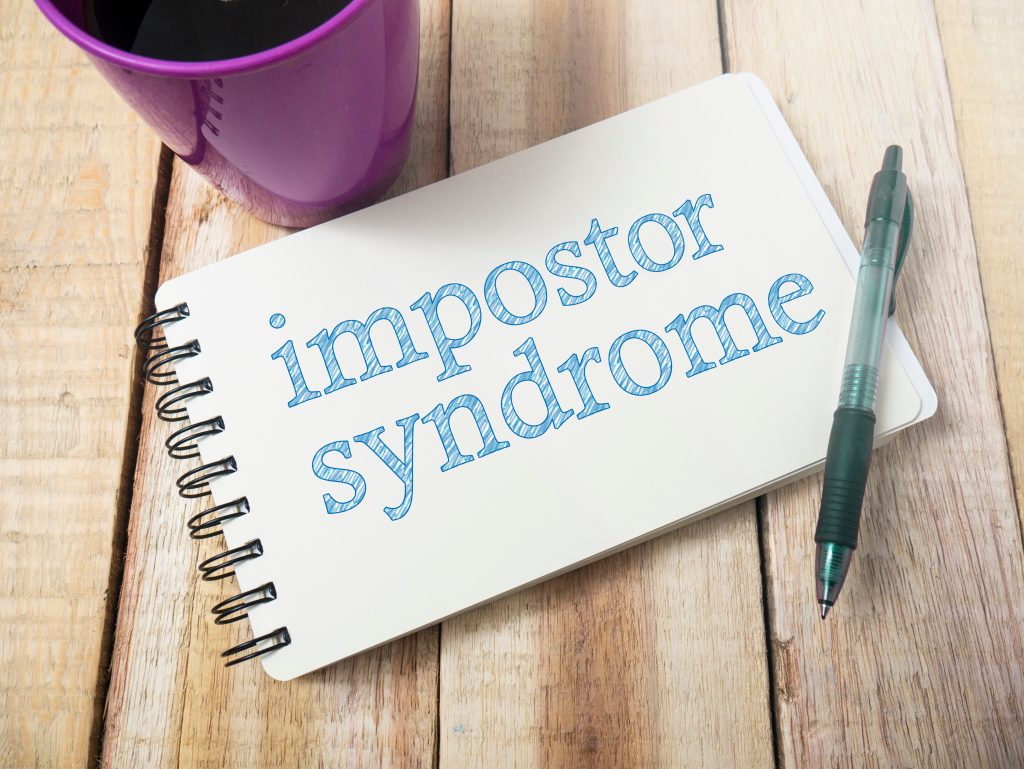Imposter Syndrome
Where does it come from and how do you get rid of it?
3 min read


On the whole I’m good with where I am in life and what I have so far achieved. I try hard to be realistic and humble but also to retain a smidge of confidence, even if it is often fake (shhh don’t tell anyone!). But every now and again imposter syndrome strikes, and when it does it is far from pleasant.
Brought about predominately by self-doubt, it is a feeling many people encounter, regardless of their career.
Self-doubt is a significant challenge many writers experience, and it rarely reflects their actual writing abilities. Even those with successful writing careers often deal with persistent self-doubt - it doesn’t mean they aren’t real writers! In today’s world of constant comparisons and nonstop connection to others, it’s natural for self-doubt to creep in. Combine that with the inevitable negative feedback that comes with even the most celebrated writing, and it’s no wonder so many writers struggle with imposter syndrome.
So, what actually is imposter syndrome?
At its core, this is the persistent belief that you are not competent or deserving, that any recognition or success you have gained is merely due to luck, and that eventually others will uncover you as a fraud or, at best, someone with only one skill to offer.
It’s no surprise that writers are frequent victims of imposter syndrome- after all, we practically serve our insecurities on a silver platter for public consumption. On top of that, we’ve chosen a craft that demands intricate skills while being judged with the precision of a dartboard in a windstorm, where opinions rely more on feelings than any measurable criteria.
Whether you are just beginning and struggling with the thought, "I could never be a writer," or you are on your twelfth book earning enough to write full-time yet grappling with feelings of inadequacy like "I'm not worthy" or "I'll never truly be good enough," these challenges are not uncommon.
Being a serial victim of this affliction I decided to do a little digging into ways to combat it.
The first step is to recognize that it is normal and widely experienced. For writers, feelings of insecurity are a common element of the creative process. Viewing it as a standard part of the journey can make it less intimidating and personal.
As is always the case, negative thoughts, if left unchallenged, will continue to grow. Stop being afraid of them. Address them, analysis them, question them. Most of the time you’ll find no actual evidence with which to validate them, which will make it easier to dismiss them. And each time you do this, your strength grows, and your inner critic weakens.
Take time to reflect on your progress and achievements. Reflection shouldn’t always be used just to improve your practices. It should also be used to acknowledge how far you’ve come.
Protect your process. This is something I have talked about many times before and is a key part of any writing journey. Establish a routine for writing and stick to it, regardless of whether you feel inspired. You’ll be surprised at what happens when you do.
As a former educator I cannot stress this enough, never stop learning. Continuous improvement is a powerful antidote to self-doubt.
Separate writing and editing. Focus on getting words down without judgment during the drafting phase. Save editing and critique for a later, more analytical stage. This prevents your inner critic from stifling your creativity and blocking your flow.
Find value in negative feedback. Not all criticism is a reflection of your worth. Some feedback can help you improve your craft, so learn to distinguish between personal attacks and constructive critique.
Join or form a writing group. Connecting with fellow writers is a powerful way to combat the isolation that often fuels self-doubt. Share your fears and find a supportive space where others understand your struggles.
Enjoy the positive feedback and more importantly believe it. While rejections are part of the process, actively seeking positive feedback can build confidence. Share your work with a trusted writing partner or community who can give you encouraging and constructive notes.
And finally, as I’ve said a million times before, remember that writing is wholly subjective. Publication decisions and personal opinions can be influenced by many factors, including the market and specific tastes, rather than just the quality of your writing. I mean, do you enjoy every book you pick up?
Bottom line. If you were bad ass enough to write a whole damn book and brave enough to put it in a public domain, you can kick the ass of any imposter syndrome that dares to creep up on you. Remember who you are.
© 2025. All rights reserved.